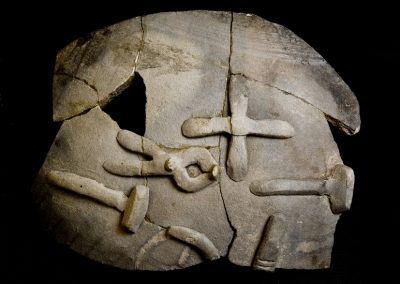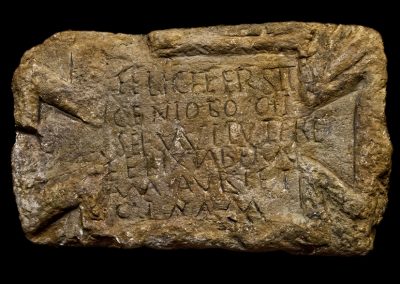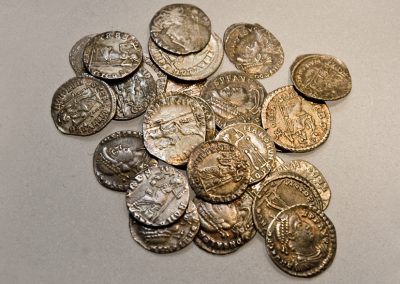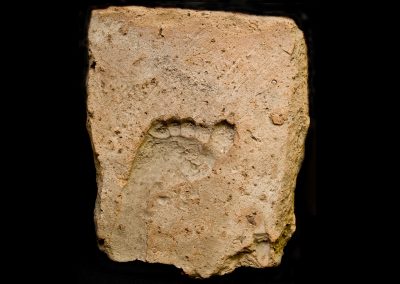Patera or Mess Tin
Malton Museum, North Yorkshire
This object is made from a copper alloy and came from Italy. It was found very close to the known site of the Roman fort at Malton, North Yorkshire. This fort was present from at least the time of the governorship of Agricola at the end of the 70s AD, during the first phase of Roman military activity in Yorkshire.
But what is this object? It may be a ‘patera’, a metal vessel used to pour ‘libations’ or liquid offerings at religious ceremonies. However, it is also often described as a saucepan or ‘mess tin’.
Trajan’s column in Rome, a monument that depicts and celebrates the Emperor Trajan’s victory in the Dacian Wars (modern day Eastern Europe), contains a possible clue. The column is decorated with images from the successful campaigns, including soldiers and their equipment. Similar objects to this feature.
On this example, it is likely that the maker, Alpicus, has stamped his name, but there is another name too, Lucius Servenius Super, thought to be the object’s owner.
Talking Points
Is there any evidence that this was a special or precious object?
Do you think this would have been a useful object to own?
Why do you think the maker stamped his name on the object?
Why do you think the owner included his name too?
Have you put your name on any objects? Why?
How do you think an object from Italy made its way to Roman Malton?
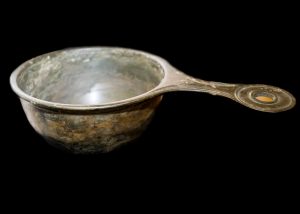
Hold a Debate
Talk to the students about the two different uses for the object – as a saucepan, for religious offerings or even for something else such as for scooping water to drink. Ask them to consider which of these uses seems most likely.
Introduce the debate motion: this was a very important object used by the Romans for making libations at religious ceremonies. Encourage students to share ideas. You can read tips for formalising your debates.
Hands on History
Malton Museum runs ‘Roman Legacy’ workshops in schools across the region and you can also borrow an object loan box to explore the Romans in Ryedale.
Museum Location
Explore more objects from Roman Britain



